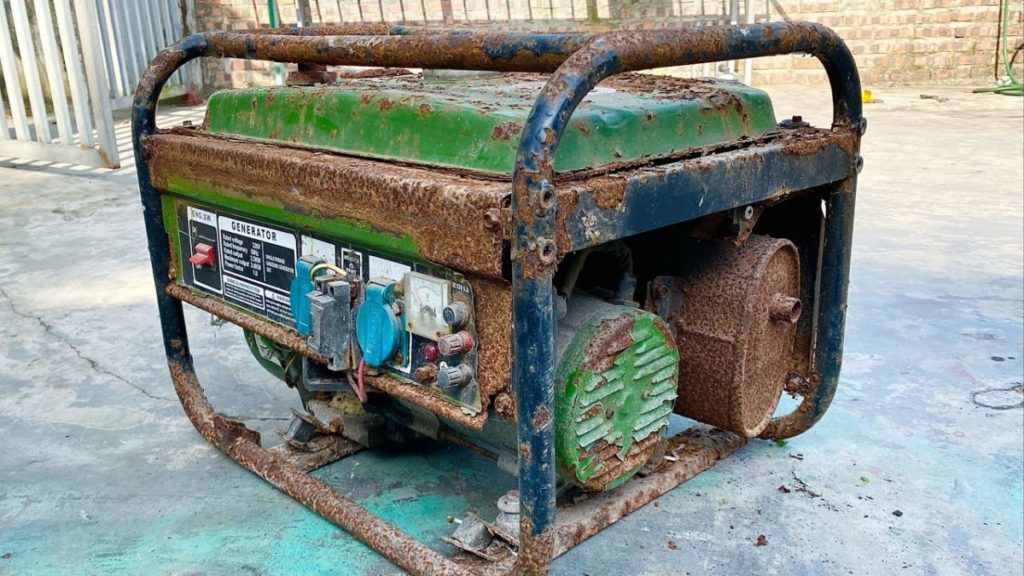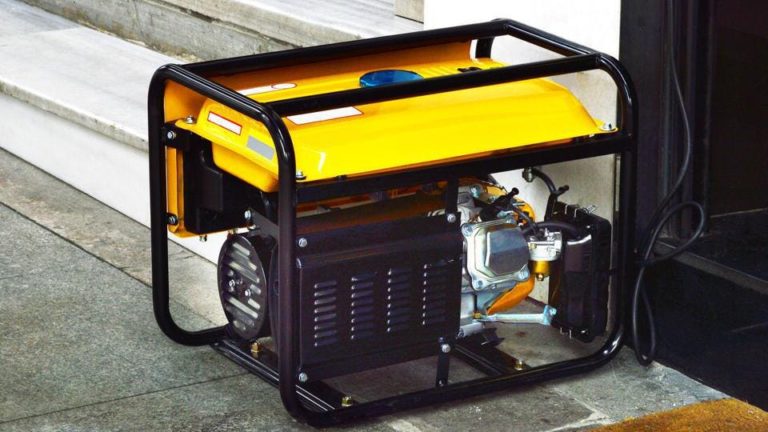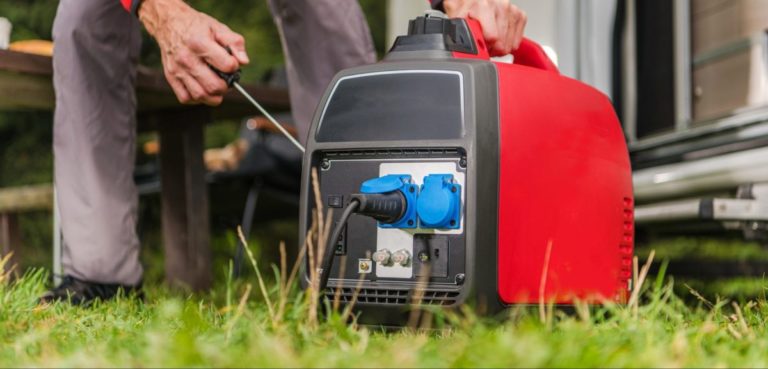If you own a generator, you know how important it is to keep it in good working condition to ensure reliability and efficiency.
However, many people overlook some simple yet effective tips that can increase their generator’s lifespan and performance.
From proper maintenance to optimizing usage, there are several easy ways to enhance the life of your generator while also improving its overall performance.
We will explore these simple tips and provide actionable information on how you can implement them to extend the life of your generator.
Regular Maintenance
Regularly inspect and clean your generator’s air filter, spark plug, and fuel filter to ensure proper functioning.
One of the most important aspects of regular maintenance is inspecting and cleaning the air filter, spark plug, and fuel filter.
A dirty air filter can decrease your generator’s performance and efficiency, while a faulty spark plug can cause the engine to misfire or fail to start.
Similarly, a clogged fuel filter can restrict fuel flow and cause the generator to run rough or even shut down.
By regularly inspecting and cleaning these components, you can prevent these issues and ensure your generator operates at its best.
In addition to inspecting and cleaning the air filter, spark plug, and fuel filter, you should also check the oil level and change the oil as recommended by the manufacturer.
A well-maintained generator will not only provide you with reliable power, but it will also help extend the life of the machine.
Regular maintenance can be the difference between a generator that lasts for years and one that needs to be replaced prematurely.
By investing a few minutes each month into regular maintenance, you can ensure your generator remains in good working condition and continues to provide you with the power you need.
Proper Storage
Store your generator in a dry, well-ventilated area, and avoid exposing it to extreme temperatures.
Proper storage is important to maintain the longevity and performance of your generator.
To ensure your generator operates at its best, it is essential to store it in a dry, well-ventilated area that is protected from extreme temperatures.
This means avoiding areas that are prone to moisture, such as basements or outdoor areas that are exposed to heavy rain or snow.
Extreme temperatures can also cause damage to your generator, so it is important to store it in an area that is shielded from direct sunlight and extreme cold or heat.
In addition to protecting your generator from temperature fluctuations, it is also important to keep it away from any potential sources of ignition, such as flammable liquids or gases.
You should also ensure that the generator is placed on a level surface and that it is securely fastened to prevent it from being damaged or stolen.
Oil Changes
Change the oil in your generator every 100-200 hours of use to ensure the engine is well-lubricated and running smoothly.
Regular oil changes are important for maintaining the health and longevity of your generator’s engine.
Every 100-200 hours of use, the oil in your generator should be drained and replaced with new oil to ensure the engine remains well-lubricated and runs smoothly.
Over time, the oil in your generator can become contaminated with debris and dirt, which can lead to premature wear on the engine and its components.
By regularly changing the oil, you can help prevent this wear and extend the life of your generator.
New oil provides better lubrication, which can help improve fuel efficiency and reduce the risk of engine overheating.
To ensure the best results, always use the type of oil recommended by the manufacturer for your specific generator model.
Use the Correct Fuel
Use the type of fuel recommended by the manufacturer to avoid any issues with the engine.
When it comes to maintaining your vehicle’s engine, using the correct fuel type is important.
The manufacturer recommends a specific type of fuel for optimal performance and to avoid any issues with the engine.
Using the wrong type of fuel can lead to poor engine performance, decreased fuel efficiency, and even damage to the engine and fuel system.
For example, using regular gasoline in a vehicle designed for premium gasoline can result in a decrease in power and fuel efficiency, while using diesel fuel in a gasoline-powered vehicle can cause serious damage to the engine and fuel system.
Therefore, it is essential to use the correct fuel type recommended by the manufacturer to ensure optimal engine performance and longevity.
Avoid Overloading
Avoid overloading your generator, as this can cause the engine to overheat and wear out faster.
Avoid overloading your generator at all costs, as this can cause the engine to overheat and wear out faster.
Overloading your generator can lead to a range of problems, including reduced lifespan, increased fuel consumption, and even complete system failure.
When your generator is overloaded, it has to work harder to meet the demands placed upon it, which can cause the engine to overheat.
This can lead to costly repairs or even replacement of the entire system.
Overloading your generator can cause the engine to consume more fuel than necessary, leading to higher operating costs and a larger carbon footprint.
To avoid overloading your generator, it’s important to carefully match the load to the generator’s capacity, and to avoid connecting multiple high-power appliances to the system at once.
By taking these precautions, you can ensure that your generator operates safely and efficiently, prolonging its lifespan and reducing the need for costly repairs.
Monitor the Temperature
Monitor the temperature of your generator and avoid letting it overheat, as this can cause damage to the engine and other components.
Monitoring the temperature of your generator is important to ensure its proper functioning and longevity.
Overheating can cause damage to the engine, alternator, and other components, leading to costly repairs or even complete failure.
To avoid this, it is essential to monitor the temperature regularly, especially during the first few hours of operation.
You can check the temperature by looking at the gauge on the dashboard or by using a remote temperature sensor.
If the temperature rises above the normal operating range, which is typically between 150°F and 200°F (65°C and 93°C), it’s important to take immediate action to cool the generator.
You can do this by adjusting the air intake or by shutting down the generator and allowing it to cool before continuing to operate.
It’s also a good idea to check the oil level and quality regularly, as low oil levels or dirty oil can contribute to overheating.
By taking these precautions, you can help ensure your generator runs smoothly and safely for years to come.
Load Testing
Perform load testing to ensure that your generator is able to handle the load you need it to, without overheating or damaging the engine.
When selecting a generator, it is important to ensure that it can handle the load you need it to without overheating or damaging the engine.
Load testing is an essential step in determining the generator’s capabilities and ensuring that it is suitable for your specific needs.
This involves connecting the generator to a load bank or a group of appliances that simulate the expected load, and then gradually increasing the load to the desired level.
By monitoring the generator’s performance during the load test, you can assess its ability to maintain a stable output, minimize overheating, and avoid any potential damage to the engine.
In addition, load testing can help you identify any potential issues or limitations of the generator, allowing you to make any necessary adjustments or repairs before using it for your actual power needs.
Overall, load testing is a critical step in selecting the right generator for your needs, and it can help you avoid costly mistakes or unexpected failures down the line.
Proper Grounding
Make sure that your generator is properly grounded to prevent any electrical issues or hazards.
Proper grounding is a critical step in ensuring the safe and reliable operation of your generator.
Grounding provides a path for electrical currents to flow safely to the ground, preventing them from flowing through people or equipment and causing electrical shocks, fires, or other hazards.
When your generator is not properly grounded, it can create a dangerous situation where electrical currents can flow through the frame of the generator, the wiring, or other equipment, putting everyone and everything in the vicinity at risk.
Proper grounding also helps to prevent damage to the generator and its components, as it ensures that any electrical surges or spikes are safely dissipated to the ground.
To properly ground your generator, you should connect the grounding terminal on the generator to a grounding rod or plate that is driven into the ground.
This grounding rod or plate should be made of a conductive material, such as copper or steel, and should be connected to the generator’s grounding terminal using a heavy-gauge wire.
It is important to ensure that the grounding rod or plate is securely fastened to the ground and that the grounding wire is properly tightened to ensure a secure connection.
You should periodically check the grounding rod or plate to ensure that it remains securely fastened to the ground and that the grounding wire is free from damage or corrosion.
Want More? Dive Deeper Here!
Hey there! If you’re the type who loves going down the rabbit hole of information (like we do), you’re in the right spot. We’ve pulled together some cool reads and resources that dive a bit deeper into the stuff we chat about on our site. Whether you’re just killing time or super into the topic, these picks might just be what you’re looking for. Happy reading!






